JICA and PAGASA boost LGUs’ capability in disaster preparedness
2024.02.28
The severe weather hazards especially increasing by the recent climate change prompted the Philippine Atmospheric Geophysical Astronomical Services Administration (PAGASA) to team up with Japan International Cooperation Agency (JICA) towards enhancing disaster preparedness capabilities of local government units (LGUs).
At the recent workshop by PAGASA, in collaboration with JICA, for the local government of Nabua, Camarines Sur, both agencies underscore the importance of early warning systems and evacuation planning in times of typhoons, heavy rainfall, floods and other disasters. The workshop is part of an ongoing cooperation of JICA and PAGASA, the Project for Capability Enhancement for High Quality Weather Observation, Forecast, Warning, and Information in the Philippines or J-POW2.
The cooperation aims to reduce damages from extreme weather disasters in the Philippines through capacity development of Filipino weather specialists, improved satellite and radar observation, thereby enhancing disaster preparedness of LGUs, and communities. Data showed that natural disasters in the Philippines heavily impact lives and economy, with about 75 million affected and P182.9 billion economic losses from 2005 to 2015. The World Risk Report 2023 shows that natural disasters and extreme weather are the Philippines’ top threat, ranking first among 193 countries with the highest disaster risk.
“This is the second phase of the said cooperation project with PAGASA. The end goal is to save more lives in times of natural disasters by improving the weather agencies’ capacity and by helping LGUs understand the risks around them and use weather information to make the best decisions when such disasters occur,” said JICA Senior Representative YANAGIUCHI Masanari.
The Philippine Disaster Risk Reduction and Management Act of 2010 provides for building people-centered early warning system so that LGUs and communities can prepare and act appropriately to reduce losses and damage. With cooperation from Japan, a country that has built its reputation as a leader in disaster preparedness, PAGASA personnel learn maintenance of weather instruments, and latest Japanese technologies in weather observation and forecast and trends in conveying weather information.
The project’s first phase already trained 175 PAGASA personnel and the second phase is expected to enhance the way LGUs and communities use weather information from PAGASA.
This year, aside from workshop in Camarines Sur from February 21 to 22, the project is slated to hold another one in Baggao, Cagayan on March 1 to 2.
JICA’s contribution to disaster risk reduction and management in the Philippines has been present since the 1970s. The Japanese bilateral cooperation agency implements both hard (infrastructure) and soft (capacity development, hazard mapping, etc.) measures in its Official Development Assistance (ODA) to the Philippines. In disaster risk reduction and management alone, JICA has contributed 400 billion yen.
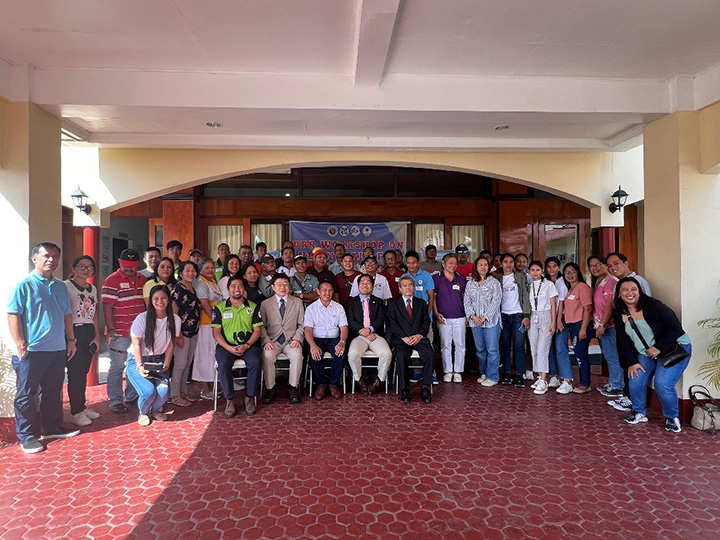
Representatives from JICA, PAGASA, and participants from Nabua LGU.
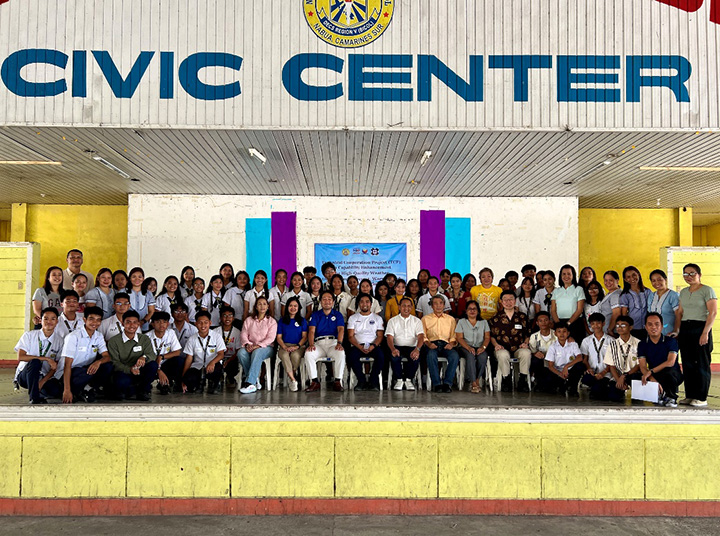
Representatives from JICA, PAGASA, and participants from Nabua National High School (NNHS), and Nabua local disaster risk reduction management office.
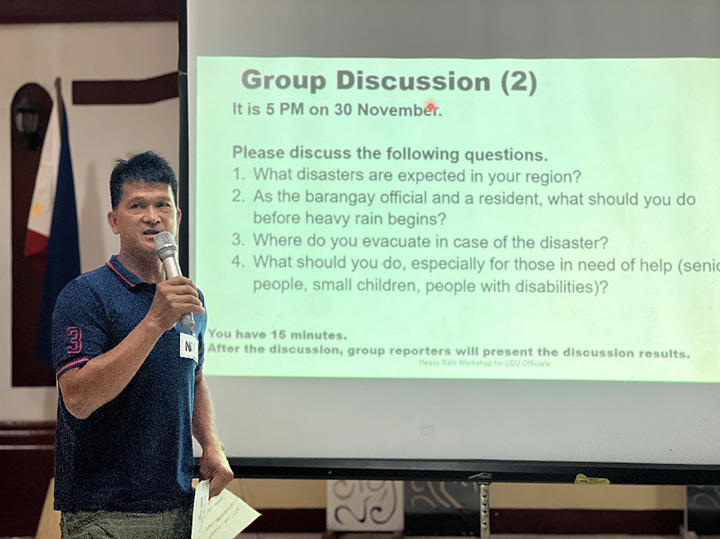
Representative from Nabua LGU presenting their output for the workshop’s group discussion.
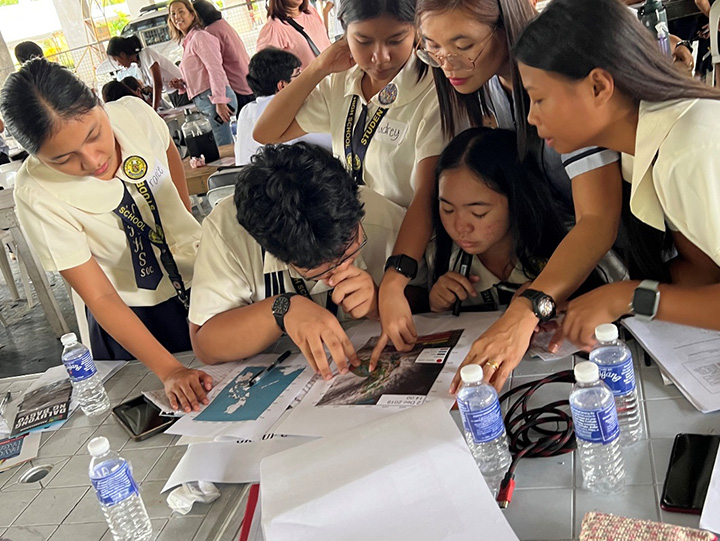
Students from NNHS participating in the workshop’s group discussion.
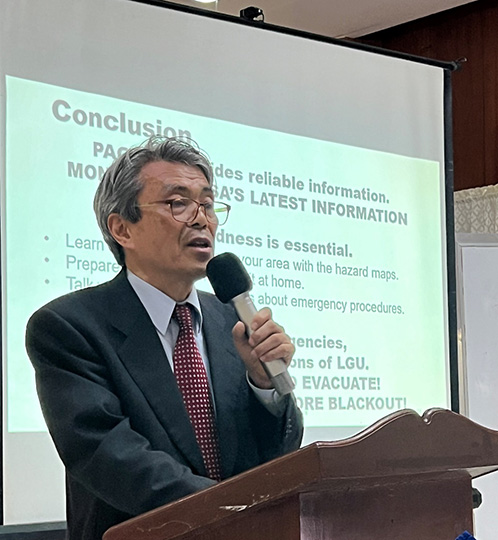
J-POW2 Chief Advisor SAZAKI discussing the conclusion of the workshop.
scroll